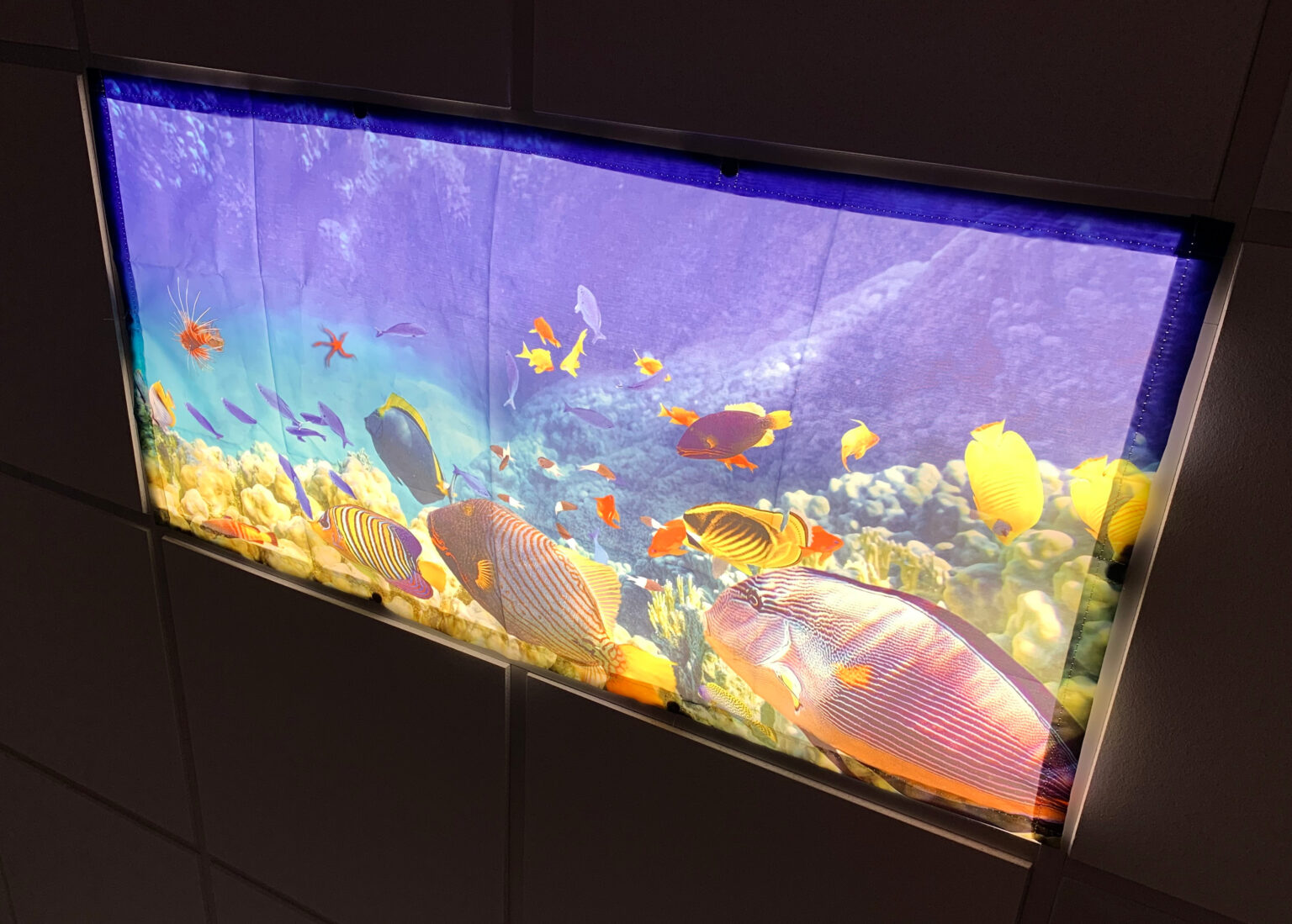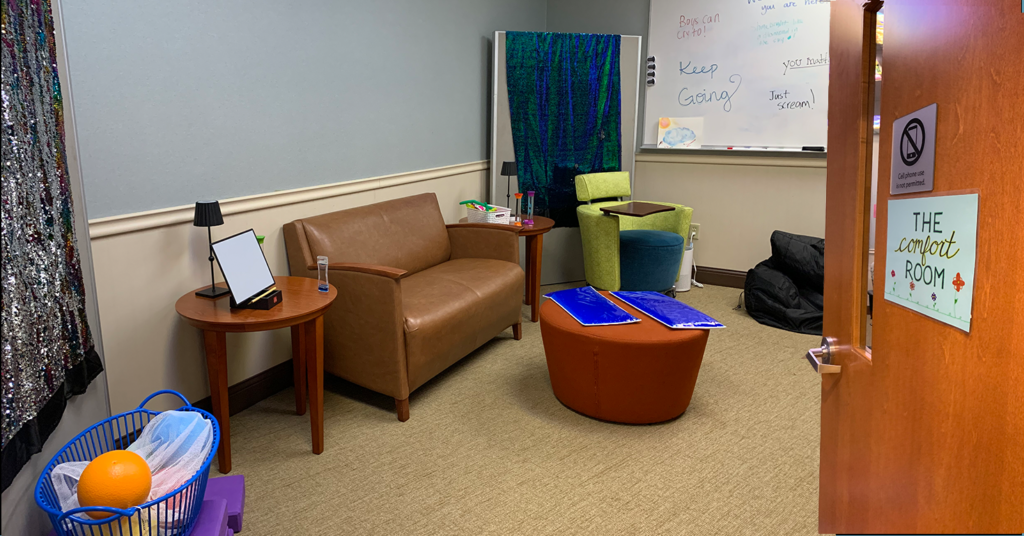Inside the new Adult Intensive Outpatient Care program for Serious Persistent Mental Illness (SMPI) at Rogers Behavioral Health in Brown Deer, Wisconsin, is a quiet, safe space called the comfort room.
Supported by Rogers Behavioral Health Foundation’s Angel Fund, the comfort room offers patients a place to engage with a variety of self-soothing tools to calm their minds and bodies when experiencing emotional distress. Here, patients are taught how to use such items as a Buddha board, weighted lap pads, fidgets, water paint easels, Zen gardens, and an array of other sensory activities to ease anxiety.
The program for SMPI is a relatively new service offered at Rogers that cares for adults experiencing schizophrenia or other long-standing psychosis, severe bipolar disorder, recurrent major depressive disorder, or other mental illnesses that cause significant impairment and limit major life activities.
Timothy HyerDevine, therapist, explains,

“The comfort room allows patients who are struggling with having fewer emotional regulation skills or larger responses a safe space to work through them. Staff can sit with patients and guide them through their emotions without having them feel the pressure of the group and not be disruptive to the group. This gives the patient foundational work, which is not something they would typically learn in the group experience.”
“The comfort room is place where our patients can incorporate and practice skills that are imperative to recovery,” said Katie Kordsmeier, case manager. “It provides a way for us to model self-care and self-soothing to help jumpstart this process for our patients. Making these tools available helps us give folks every opportunity to be set-up for success.”
SMPI therapist, Victoria Bronec, shared the story of a patient who was hyperventilating, shaking, and crying during one particularly difficult session. “After bringing him to the comfort room, a staff member proceeded to throw a ball back and forth while engaging in conversation about his hobbies. When his symptoms began to lessen, he chose to sit with a weighted lap pad and engage in deep breathing. When the patient appeared oriented and calm, he was able to return to the group.” It is estimated that patients are typically in the comfort room between five and 10 minutes.
“It has been amazing to offer the SMPI program to adult patients who would have otherwise been denied access to care due to their active and acute mental health symptoms,” said Sarah Siker, operations manager, “The generosity of the Foundation allows for a safe and comfortable place for these patients to go and practice the skills they are learning. The comfort room has helped our patients be successful. We are so grateful!”
